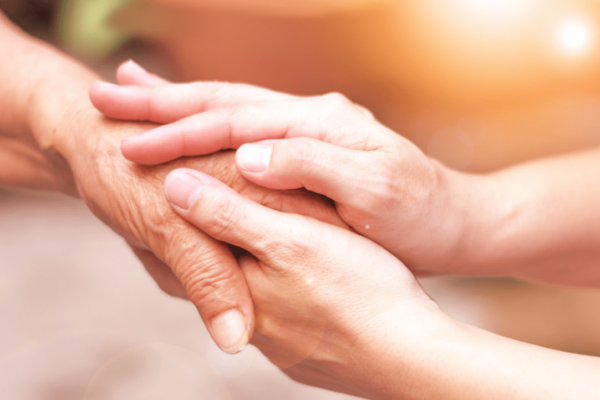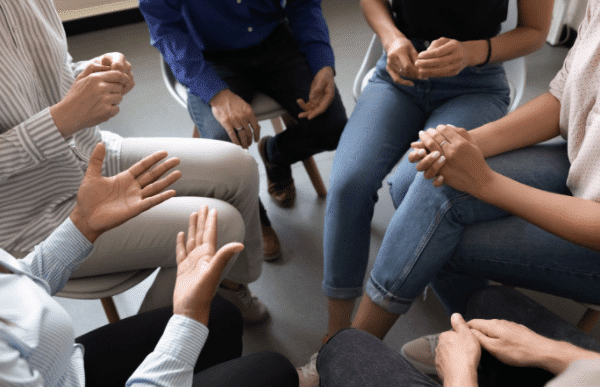How Drug Addiction Affects Relationships: What You Should Know

When addiction takes control of someone’s life, it can destroy everything, including what matters most: loving relationships.
People struggling with substance abuse may experience a breakdown in their relationships with their friends and even close family. Because the personality of an addicted person can be much different than before, their behaviors can change. Any trust they had in their relationships may disappear.
Abusive or codependent relationships also can develop due to substance abuse. Drugs can drastically alter a person’s perspective and behavior, leading them to treat their partner and family differently. Even your closest loved one might change upon becoming an addicted person.
If you or someone you know faces the uphill battle of addiction and recovery, you want to protect your relationship. Keep reading to learn more about how drug addiction affects relationships.
1) Secrecy and Deception
One of the biggest problems people have with an addicted family member are the lies and deception. When someone starts chronic drug use, it can be hard for the addicted person to realize they have lost control of their life. Addiction leads to extreme feelings of guilt and shame, leading to the user’s attempts to hide their problem from their loved one. People struggling with addiction may live a double life to deceive their families.
Lies range from excuses to get money from family members to concealing the addiction itself. Small lies turn into bigger ones because people who are addicted are afraid to face judgment from their family. They may even isolate themselves to cover lies and avoid fights. Once a person’s drug use turns into an addiction, lies can ruin the relationship. Some family members may not understand how their loved one’s addiction is more powerful than their will to be honest.
2) Physical Abuse and Violence
One of the most traumatic effects of how drug addiction affects relationships is domestic violence. With resentment and anger growing between an addicted person and their loved one, it can be hard for either party to contain their emotions. A person addicted to a controlled substance can generate excessive anger, and small disagreements can lead to huge fights that can turn fatal.
A person living with someone with an addiction may not feel safe in the home. These people are at high risk of becoming victims because violence can erupt from the person struggling with addiction. The reason for this is that drug addiction can severely impact someone’s mental health. If a person is taking drugs like methamphetamine or cocaine, there can be devastating changes to the brain that alters their perceptions of right and wrong. In this skewed mental state, the addicted individual may cross a line and act violently.
People whose partners are addicted also may turn to physical violence to express their frustrations. In either case, domestic violence is not appropriate. It is not the answer. Call a national hotline if you are in a situation of physical abuse.
3) Emotional Abuse
Several different forms of emotional abuse can transpire in romantic relationships. Emotional abuse, neglect, or exploitation can develop suddenly or gradually, and both parties may be the instigators.
The person abusing drugs may experience mood swings, depression, paranoia, or anxiety. People addicted to drugs are much more likely to suffer from mood disorders than the rest of the public. The user may inflict their anger, frustration, and shame on the person they love.
In codependent relationships, the victim also may try to save the addicted person, even if they are the abuser. This codependency creates a cycle of abusive relationships.
People in relationships with emotional abuse may find it helpful to attend individual therapy, family therapy, or couples therapy with an addicted person. Support group meetings are also viable options for addiction treatment for people struggling with drug abuse and their affected family members. These meetings provide an empathetic and supportive environment. Groups like Narcotics Anonymous, Alcoholics Anonymous, or SMART Recovery are available resources for addicted people. At Master Center for Addiction Medicine, we also have a range of therapy and support group options.
4) Enabling
For people whose loved one is struggling with addiction, it can be tricky to help them without enabling their addiction. Sometimes, a loved one may try to help the addicted person and end up furthering their addiction unintentionally.
The most common way a family member can enable their loved one is through financial support. The family member may give their loved one money that they think is for groceries or rent. In the throes of addiction, a person will spend that money on drugs instead.
When it comes to addiction, there is a fine line between helping and hurting. The family of addicted people can be in denial at times. Since they are afraid of losing their addicted loved one, these family members may pretend the problem does not exist.
Accepting blame for the addicted individual, making excuses for them, and even minimizing their actions to their benefit are common enabling behaviors. This behavior is ineffective and often leads to codependent relationships.
5) Codependency
Codependent people most often engage in enabling behaviors. If a person struggles with substance abuse never faces the consequences of their actions, they may never realize the gravity of the problem.
Codependent relationships can cause relationship, financial, and medical issues within any family.
Mood swings are also frequent among people in these relationships. Codependent relationships can lead to self-neglect, failure to uphold responsibilities, and poor health, both for the addicted person and their family members.
Codependency also can cause addiction cycles and relapse, especially for women. Women who are addicted are more likely to relapse if their partner continues to abuse drugs.
The best way family members can help their loved one struggling with drug abuse is by helping them face their decisions. By seeking counseling for themselves, trying their best not to protect or condone their behavior, and not taking responsibility for their loved one’s actions, a partner or family can show tough love to the one they love.
6) Issues of Intimacy and Sexuality
For people struggling with drug addiction, intimacy in their romantic relationships can suffer. Since addiction can be an isolating condition, it can be hard for these people to have close relationships with their significant other. People addicted to drugs may use substances to escape their emotional trauma, thereby damaging their relationship with a loved one.
Traumatic events in someone’s early life can be depression or childhood abuse. These can cause intimacy problems for people even before addiction. People struggling with addiction also tend to feel alone and shameful because of it, which leads them to push away their family and partner.
For men, erectile dysfunction can be an outcome of long-term addiction. Studies have shown that using drugs can severely negatively impact someone’s sexual health. Some drugs, such as cocaine, can momentarily increase someone’s sex drive and the risks of doing dangerous sexual behaviors. However, once this drug wears off, it can also cause erectile dysfunction or loss of interest in a significant other. Other controlled substances such as heroin, barbiturates, opioids, and more can also lead to ED.
7) Loss of Trust
Trust is crucial for maintaining a healthy relationship. Losing it can cause the relationship’s downfall. The loss of trust can further feelings of resentment and jealousy.
Someone facing drug addiction can seriously damage their relationship because of a potential lack of communication. That person may not put the same amount of energy or time into their relationship that they put into their addiction.
Once trust has broken, it may seem impossible to rebuild. People using drugs can do unimaginable things to the people they loved. Lying about drug use or stealing money are common behaviors that can cause these hurtful rifts. Losing trust in a relationship can lead to other issues like poor intimacy.
8) Irreparable Relationships
If a significant other finds it too hard to help an addicted partner, it is time for both parties to acknowledge that they are causing harm to one another. The addicted person must learn that the relationship is too destructive and that the best result may be ending the relationship.
If the relationship is irreparable, it’s critical to cut ties most safely. If violence is present in the relationship, both people must ensure their safety before cutting contact. Reaching out to an abuse hotline can be helpful in times of need.
People should remember to seek support from friends and family after the end of the relationship. By looking out for themselves first, both people in the situation can heal in time.
Conclusion
Addictions can cause conflicts in a relationship that the addicted person and their family may not know how to overcome. Dealing with lies, loss of trust, mental health issues, and other forms of abuse can end even the strongest relationship. However, empathetic addiction treatment centers and support groups exist to help people struggling with drug abuse. If you or and their loved one suffers from addiction, contact the Master Center for Addiction Medicine today.
References
https://www.drugabuse.gov/international/abstracts/characteristics-drug-dependent-people
https://pubmed.ncbi.nlm.nih.gov/9460027/
http://www.uphs.upenn.edu/addiction/berman/family/enabling.html


